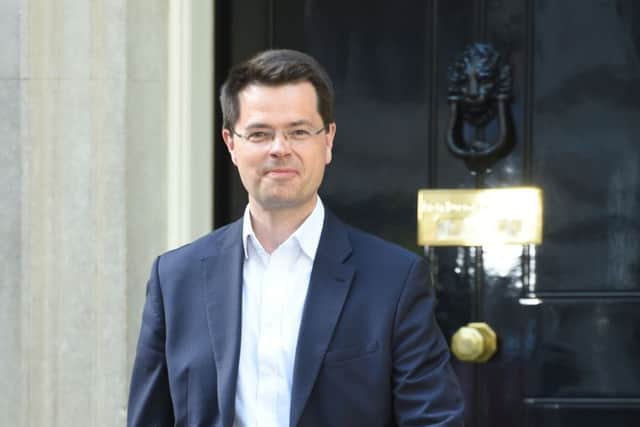Sam McBride: Why DUP's London role could hasten Stormont's return


It is certainly the case that in any new situation – which is what this is – there is inherent uncertainty.
And the argument that the British government cannot be seen by nationalists as an ‘honest broker’ between the DUP and Sinn Fein when it is propped up by the dominant unionist party is at first glance a logical one.
Advertisement
Hide AdAdvertisement
Hide AdHowever, that is to largely misunderstand a situation in which the key dispute preventing the restoration of Stormont since March is not about the referee but between the two key participants – the DUP and Sinn Fein, with the key Sinn Fein demands such as that Arlene Foster cannot serve as first minister while the ‘cash for ash’ inquiry continues not being in the gift of the government even if it agreed to them.


At the core of the impasse, if power-sharing in Belfast is to work it will have to be because the DUP and Sinn Fein want it to work and are prepared to make the compromises necessary for that end.
Some in Sinn Fein appeared to be prepared to walk away from Stormont in the short to medium term, due both to the strength of the mandate which they received in March after collapsing devolution and how popular it was with their electorate to make the DUP publicly squirm over behaviour which is widely believed in Northern Ireland, even by plenty of unionists, to have been arrogant.
Thursday’s result altered that analysis on two levels.
First, it was always the case that if Stormont could not be restored then Westminster would have to step in and, under direct rule of some form, run public services in Northern Ireland. That was a fairly unpalatable prospect to the voters who backed a Sinn Fein whose posters in this election included the slogan “no Tories”.


Advertisement
Hide AdAdvertisement
Hide AdBut the prospect of Theresa May directly running the Stormont administration with the DUP at her right arm could hardly be less appealing to either the traditional republican or more ideologically left-wing sides of Sinn Fein.
Secondly, the party now faces the complication of being in a position which it assured voters would never materialise. The party told voters that Northern Ireland MPs never have influence at Westminster and therefore it did not matter whether they took their seats in the Commons.
Suddenly, it is clear that not only does the DUP have king-making influence, but that Sinn Fein if it took its seats could help to defeat the government in key votes if there is even a tiny Tory backbench rebellion.
Although Gerry Adams has said that Sinn Fein’s abstentionist policy – stemming from its opposition to the oath of allegiance – is immutable, the party’s surge in support over recent months means that it now represents a far broader swathe of nationalism. Explaining to nationalists who once put SDLP MPs into the Commons why Sinn Fein on a point of principle is allowing the Tories to run Northern Ireland is a looming banana skin.
Advertisement
Hide AdAdvertisement
Hide AdAnother impediment to a deal prior to Thursday was that the DUP appeared uneasy about another election while Sinn Fein – in March just 1,168 votes and one seat behind the DUP – was relishing the prospect of another election in which it could ask nationalists for one final push to dislodge the DUP. That imbalance, with one party desperately weak and the other strong, made it difficult for a compromise to look like anything other than defeat for the DUP.
Suddenly that situation looks very different.
Coming from a position of exceptional weakness after March’s Assembly election, the DUP now finds itself in a place of unparalleled electoral strength. The 292,316 votes which the party polled (despite not even standing a candidate in Fermanagh-South Tyrone) are by far its biggest ever electoral endorsement and a 30% increase on its vote in March.
There is strong reason to believe that the same unionist anger at Sinn Fein which propelled the party to this victory will last into an Assembly election.
From a position where Sinn Fein hoped for an Assembly election so that it could topple the DUP as Northern Ireland’s top party, suddenly the DUP would likely return to a far stronger position and, crucially, go above the 30-MLA threshold necessary for triggering the petition of concern veto mechanism – a power which for the first time since 2007 the DUP has been without since March’s election.
Advertisement
Hide AdAdvertisement
Hide AdAnd, lest anyone think that the DUP, now at the heart of things at Westminster, no longer wants to get Stormont back, think again.
Not only is the DUP ideologically committed to devolution, but every one of its MLAs – including leader Arlene Foster – will ultimately find themselves jobless if Stormont fails to return.
The party, its MLAs and advisers also had a significant income from Stormont via various funding streams which would dry up without devolution.
None of these factors mean that the DUP and Sinn Fein will strike a deal before the June 29 deadline. Ultimately, each party will make a calculation about what is in its interest.
But it is entirely possible that by the end of this month the DUP will be sharing power not just with Theresa May in London, but with Sinn Fein in Belfast.